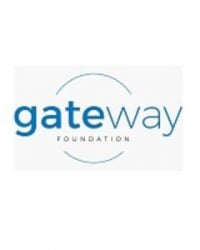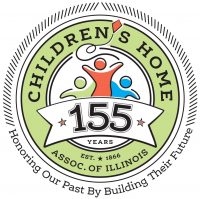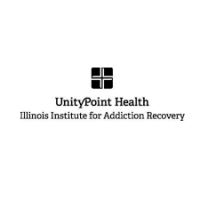United in Jesus Outreach Ministries
Drug Rehab Center in Canton, Illinois
United in Jesus Outreach Ministries is an accredited drug rehab center in Canton, IL, offering comprehensive addiction treatment services with a focus on alcoholism and opioid addiction through evidence-based practices and experienced professionals.
About United in Jesus Outreach Ministries in Illinois
United in Jesus Outreach Ministries is an accredited Alcoholism and Opioid Addiction Treatment Facility located in Canton, Illinois. Recognized by SAMHSA (Substance Abuse and Mental Health Services Administration) and holding a valid State License, this facility offers vital services for individuals struggling with alcoholism and opioid addiction. United in Jesus Outreach Ministries provides a range of treatment options to address these issues, including Outpatient, Aftercare Support, and Intensive Outpatient Levels of Care. With its dedicated team of professionals, this facility is committed to guiding individuals on their journey towards recovery.
Through United in Jesus Outreach Ministries, individuals dealing with addiction and substance abuse can access a variety of services to support their recovery. These services are designed to address the unique needs of each person and help them overcome their challenges. The facility offers outpatient treatment, which allows individuals to receive care while maintaining their daily responsibilities. Additionally, they provide aftercare support, ensuring that individuals have ongoing assistance and guidance after completing the initial treatment. Lastly, United in Jesus Outreach Ministries offers intensive outpatient programs, which provide more structured support and therapy to individuals needing a higher level of care.
Genders
Ages
Modality
Additional
Accreditations
State License
SAMHSA
Conditions and Issues Treated
Opioid addiction has become a significant health problem in the United States. When a person’s life becomes unmanageable because of an opioid addiction, treatment can help them get sober. Treatment includes medical care and counseling.
“With so many people struggling with opioid addiction, we need more care and attention for those who want to quit. Opioid addicts often take opioids when they experience a painful injury – that’s how the cycle starts! When someone begins taking their medication differently than prescribed or takes an excessive amount of drugs, it means they’re hooked on drugs and in danger of overdosing.
The most successful way to beat this is through detoxing from these types treatments at United in Jesus Outreach Ministries in . Most facilities start by using medical support during the process while providing counseling services; rehabilitation comes later on after treatment has been completed successfully.
Levels of Care Offered
This center offers a variety of custom treatment tailored to individual recovery. Currently available are Aftercare Support, Intensive Outpatient, Outpatient, with additional therapies available as listed below.
Outpatient addiction treatment is beneficial for people who are able to function well in their day-to-day lives. It is recommended for people who are not yet ready to end their relationships with friends or family members who might be encouraging drug and alcohol use.
Intensive outpatient treatment is beneficial for:
- People who are able to attend treatment more than 3 times per week.
- People who do not meet the criteria for inpatient treatment.
- People who are able to contribute to their own recovery outside of the treatment center.
- People who are motivated towards recovery.
- People who are able to overcome addiction on their own without the need for higher levels of care.
Outpatient programs at United in Jesus Outreach Ministries, the Canton resident can live with their family while continuing with their job or studies. Treatment includes educating the patient on drug abuse, medications, and counseling sessions at the individual or group level. Outpatient treatment plans cover diagnosis, detoxification, management, and counseling. They are a popular option for those who have graduated from inpatient facilities.
Without aftercare support, addicts can easily relapse back into addiction. It is crucial to integrate the addict back into society. Aftercare support should take place after outpatient treatment has ended.
There are a few different types of aftercare support that patients can seek after completing an inpatient treatment program:
- 12 Step Self-help groups (AA, NA)
- Therapeutic communities,
- Long-term, structured sober living arrangements
- Halfway houses (residential treatment centers)
Many different support groups exist for addicts to seek help after treatment. Some are more effective than others, depending on the person’s addiction, background, and other factors.
Therapies & Programs
Individual therapy is a form of counseling where you meet with a trained professional one-on-one. Meeting with a therapist in this setting allows for a personal and trusting relationship to be built. This allows the patient to open up about sensitive or private issues they may not feel comfortable discussing in a group. Individual therapy helps identify the root causes of your addiction, which can help prevent relapse.
Couples therapy for drug addiction is a unique form of therapy that allows family members to work through the emotional issues of their loved one’s addiction together. Family members can support each other while learning how to cope with the addiction and encourage healthy changes. The two will work with a therapist to learn how the addiction affects themselves and the relationship.
Family therapy is often done alongside drug treatment to help addicts stay sober. The goal of family therapy for drug addiction is to create an environment where communication can happen without judgment, hostility, or blame. The therapist will sit with the family so they can learn how to communicate differently and provide new tools for dealing with emotions so that people don’t want to drink or do drugs. It’s important for families to focus on relapse prevention plans during treatment so that if the addict feels like they want to use again, they’ll know what steps they need to take together to prevent it from happening again in the future.
Group therapy sessions are another common addiction recovery service. These group sessions typically involve six to 12 addicts who meet regularly with a trained professional for support and guidance.
During these sessions, the group shares their experiences with one another and provides feedback that can help each member avoid relapse or overcome specific obstacles they are facing in their recovery process. With this type of support and guidance, addicts can feel like they are part of a community that understands their struggles and will help them get through the hard times.
Cognitive Behavioral Therapy (CBT) focuses on the underlying thoughts and behaviors that caused the problem of addiction in the first place and may cause a relapse. Negative feelings are common in drug abuse disorders, but they can lead to co-occurring disorders if not recognized. CBT involves strategies that help to change the behavior pattern by restructuring negative thoughts into positive ones. It helps to remove these feelings, and it provides long-term benefits. Also, CBT promotes self-awareness and self-control. It can be administered as a monotherapy or as part of combination therapy.
CBT can improve the patient’s mood, reduce drug cravings and boost success rates on treatment plans. Regular practice can help individuals handle negative attitudes, thoughts, and feelings without turning to drugs or alcohol. The core belief of Cognitive Behavioral Therapy (CBT) is that one’s moods, behaviors, and actions are all connected. Individuals can improve their quality of life using CBT. It helps addicts understand the patterns of thought and feelings that cause them to use drugs or alcohol and develop a healthy response.
This type of therapy can help addicts get in touch with their emotions without feeling overwhelmed by them. It also allows the addict to develop strategies for coping with negative feelings that might trigger cravings or lead to relapse.
During these sessions, addicts will learn how to recognize and manage their cravings while developing an action plan for dealing with stress and other triggers. Combining the coping strategies learned in these sessions with ongoing therapy can help addicts lead a stable and healthy lifestyle that is free from addiction.
These types of therapy sessions provide several benefits to people dealing with addiction. By providing a safe environment for addicts to discuss their feelings, therapists can identify the issues that trigger cravings and work with addicts to develop strategies for avoiding relapse.
Payment Options Accepted
For specific insurance or payment methods please contact us.
Additional Details
Specifics, location, and helpful extra information.
Canton, Illinois 61520 Phone Number(309) 649-1618 Meta DetailsUpdated November 25, 2023
Staff Verified
United in Jesus Outreach Ministries Patient Reviews
There are no reviews yet. Be the first one to write one.
Canton, Illinois Addiction Information
In 2016, more than 2,350 Illinoisans died from drug overdoses. More than 5,500 deaths annually occur in Illinois due to the abuse of alcohol and other drugs. 7.17% of Illinois residents reported using illicit drugs in the past month (2018). Substance abuse costs the state approximately $3.5 billion every year.
About 1 in every 4 adults in Canton struggles with some form of alcohol addiction. The number of people admitted to rehab centers has increased by 50% in the past decade. About 42% of opioid-related deaths are for people ages 25-44. Other abused drugs are methamphetamine, cocaine, and marijuana. Addiction is a very serious problem, if left untreated, it can lead to major health problems and even death.
Treatment in Nearby Cities
- Lake Villa, IL (164.0 mi.)
- Skokie, IL (156.9 mi.)
- Olney, IL (162.7 mi.)
- Hinsdale, IL (139.0 mi.)
- Oak Forest, IL (139.5 mi.)
Centers near United in Jesus Outreach Ministries
The facility name, logo and brand are the property and registered trademarks of United in Jesus Outreach Ministries, and are being used for identification and informational purposes only. Use of these names, logos and brands shall not imply endorsement. RehabNow.org is not affiliated with or sponsored by United in Jesus Outreach Ministries.









